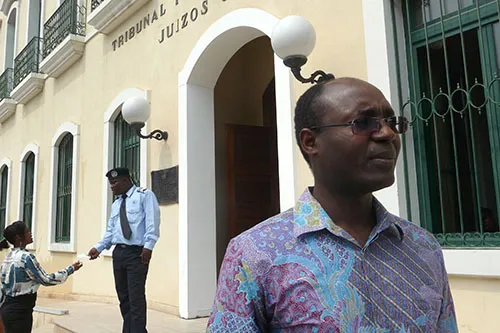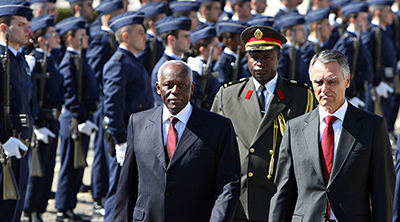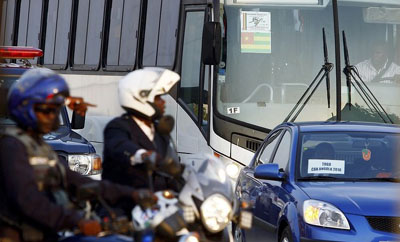
CPJ, partners call on Angola to commit to press freedom during UN human rights review
The Committee to Protect Journalists and two Angola-based media rights organizations have made a joint submission to the United Nations Human Rights Council, calling on authorities in the southern African nation to improve its record on ensuring journalists’ safety and press freedom. The submission, dated July 16, 2024, was made ahead of Angola’s January 2025…

Angola turns tables on Marques de Morais, reinstates criminal defamation charges
Angolan journalist Rafael Marques de Morais is once again facing the threat of prison after the public prosecutor reinstated charges of criminal defamation on Monday. Seven Angolan generals have been pursuing criminal defamation charges against the investigative journalist over the publication of his 2011 book Blood Diamonds: Torture and Corruption in Angola, in which he…
Acclaimed journalist Marques de Morais on trial for defamation in Angola
On Tuesday, less than a week after receiving an award for his journalism from the London-based freedom of expression group Index on Censorship, veteran journalist Rafael Marques de Morais will stand trial in Angola on charges of criminal defamation.

First US-Africa summit short on press freedom, other human rights
Top African and U.S. leaders are meeting next week in Washington in a first-of-its-kind summit focused on African development. But critics argue the summit is flawed in design, overlooking human rights such as freedom of expression and barring civil society actors from bilateral discussions.
Training can help journalists survive captivity
Two murdered journalists for the Africa service of Radio France Internationale, Ghislaine Dupont, 51, and Claude Verlon, 58, might have had a chance. They were abducted on November 2 in Kidal in northern Mali, but the vehicle their captors were driving suddenly broke down, according to news reports.
Investigative journalist under threat again in Angola
The Angolan government has brought criminal charges against journalist Rafael Marques de Morais for his book, Blood Diamonds: Corruption and Torture in Angola, published in Portugal in 2011, that documented allegations of homicides, torture, forced displacement of civilian settlements, and intimidation of inhabitants of the diamond-mining areas of the country’s Lundas region.

Portuguese media chilled by Angolan involvement
Portuguese journalists are increasingly concerned by Angola’s growing investment and influence in their country. Buoyed by petrodollars and diamonds, powerful Angolan interests have been indulging in a buying spree in their former colonial power. Angolan capital invested in Portugal increased 35 times in the past decade, according to news reports. In a process often acidly…
Defending the middle ground of online journalism
It’s easy to use polarizing descriptions of online news-gathering. It’s the domain of citizen journalists, blogging without pay and institutional support, or it’s a sector filled with the digital works of “mainstream media” facing financial worries and struggling to offer employees the protection they once provided. But there is a growing middle ground: trained reporters…
Murder, ‘suicide,’ crossfire: A week of journalist killings
Today we will report another murder of a journalist. This one was in Argentina. The last one we documented was a couple days ago–Alberto Graves Chakussanga was shot in the back in Angola. These tragedies are part of our daily work at CPJ, but this week was different. There have been eight killings of journalists…

In Angola, censorship shrouds journalist’s killing
On January 8, while Angola was hosting the African Cup of Nations, the country made worldwide headlines after a deadly attack on the Togolese national soccer team, which left a coach and a journalist dead. With international attention turning to the story, a shroud of state censorship and self-censorship by the Angolan media obscured the…